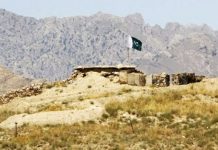Iran claims to have successfully launched an imaging satellite, known as “Noor Three,” which is now orbiting the Earth. This development comes amidst Iran’s restricted access to nuclear and space technology and could potentially heighten tensions with Western nations.
Iranian state media, IRNA, quoted Communications Minister Isa Zarepour stating that the satellite has reached an altitude of approximately 450 kilometers (280 miles). However, the exact launch date remains undisclosed.
The primary function of imaging satellites is to monitor terrestrial activities and gather image data, with advanced ones possessing the capability to capture detailed terrestrial images. Espionage satellites, in particular, have superior capabilities. Specific details about the features and capabilities of Iran’s newly launched satellite have not been revealed.
Iran’s Revolutionary Guards, a semi-military organization, oversaw the launch. General Hossein Salami, their top official, lauded the launch as a significant victory, emphasizing its potential for collecting images and data.
The launch might intensify existing tensions, as Western countries have often met Iran’s space initiatives with skepticism and apprehension. The U.S. has previously contested Iran’s space activities, arguing that the involved technology could be adapted for intercontinental ballistic missiles and claiming a violation of U.N. resolutions.
Nevertheless, Iran maintains that its space and nuclear programs are solely for peaceful and civilian purposes. The country’s commitment to limiting its nuclear activities was documented in a 2015 agreement with several global powers, including the U.S. However, tensions escalated when the U.S. withdrew from this agreement under the Trump administration.
The successful launch of the “Noor Three” is perceived by Iran as significant progress in its space program, notwithstanding its history of mixed outcomes and several mission complications. This development has yet to receive public comments from Western countries but is likely to be closely monitored given the history of tension and contention surrounding Iran’s space initiatives.





























